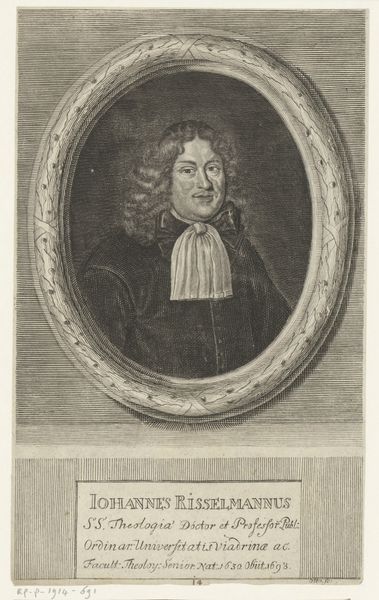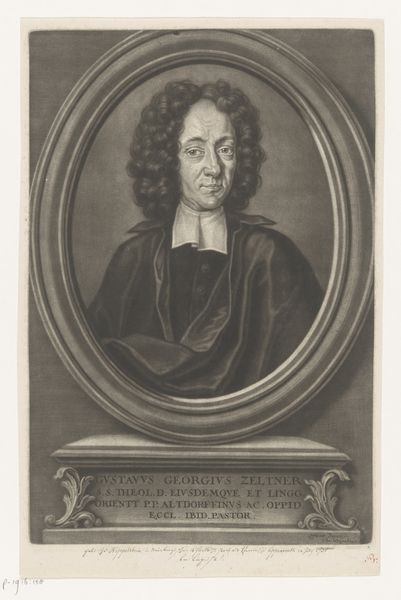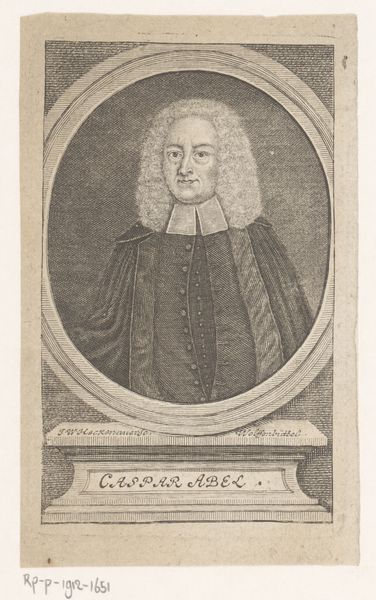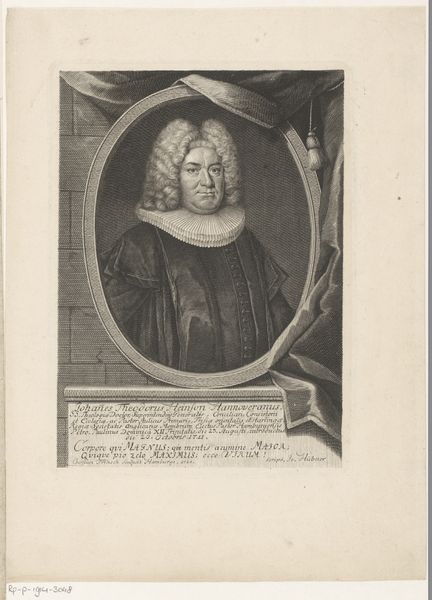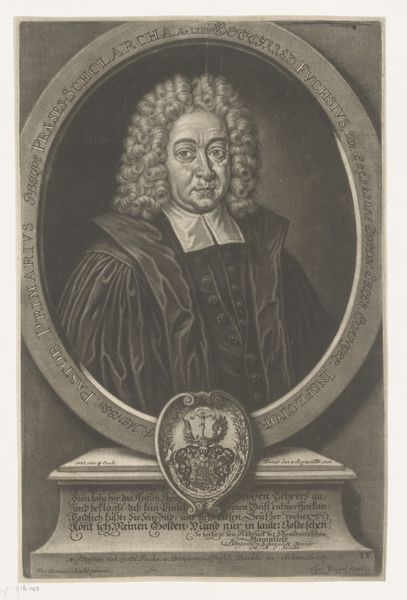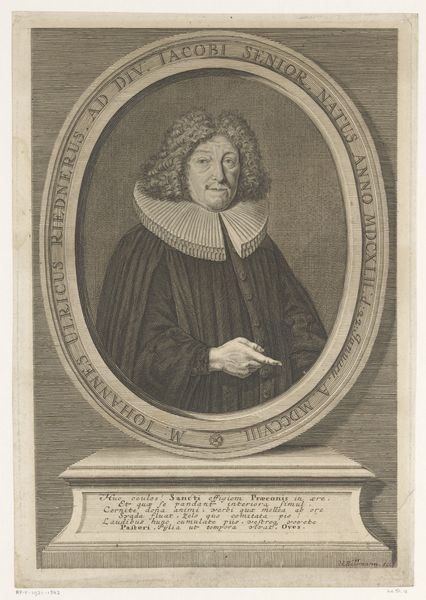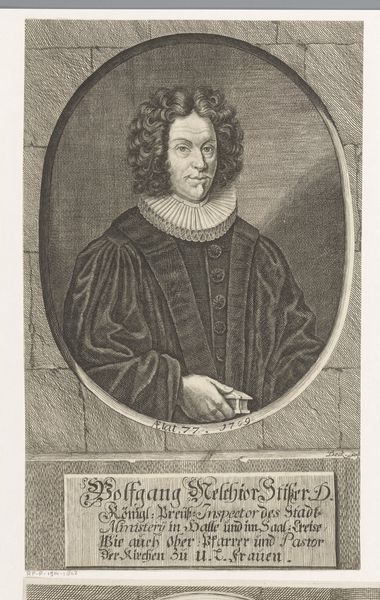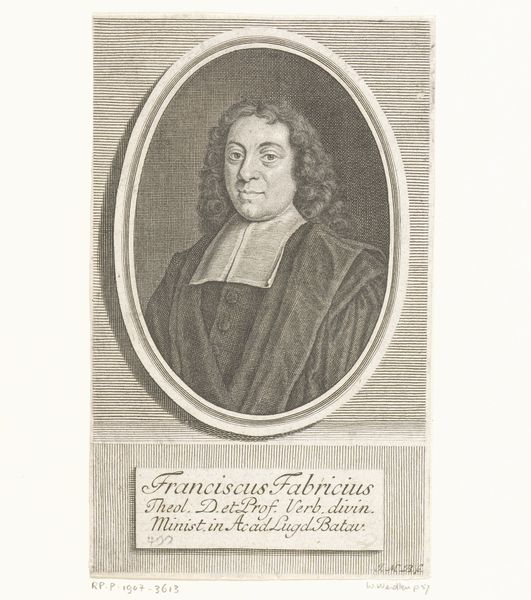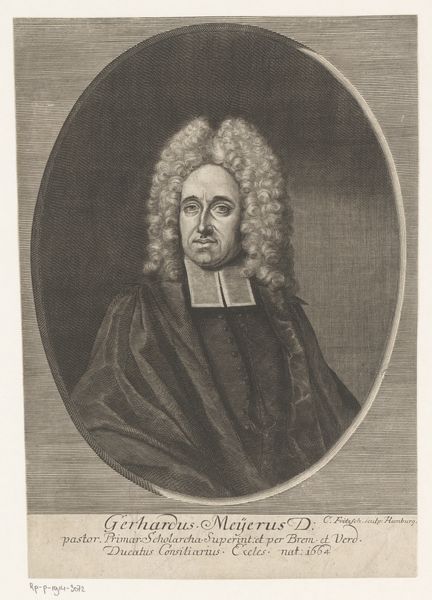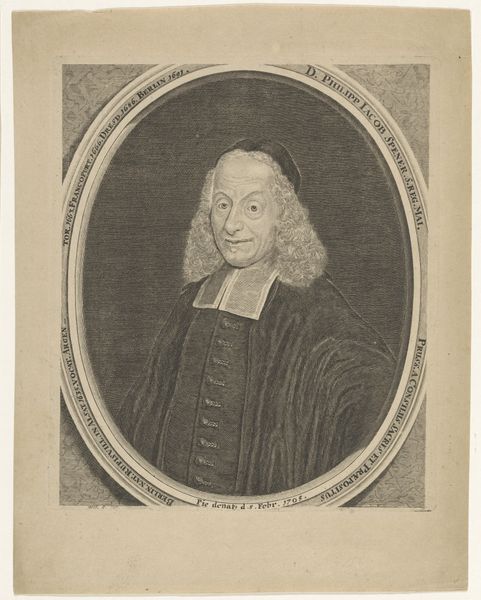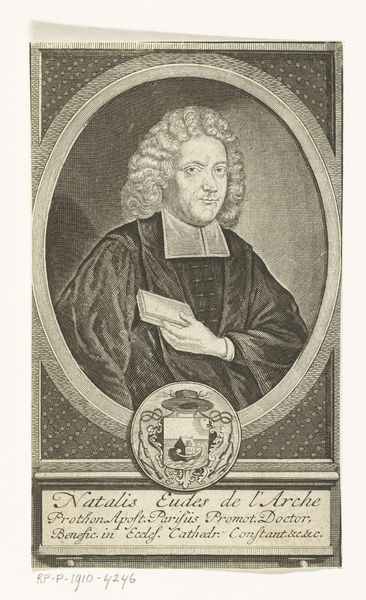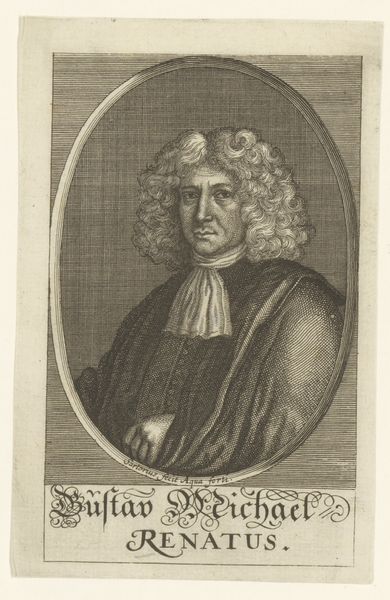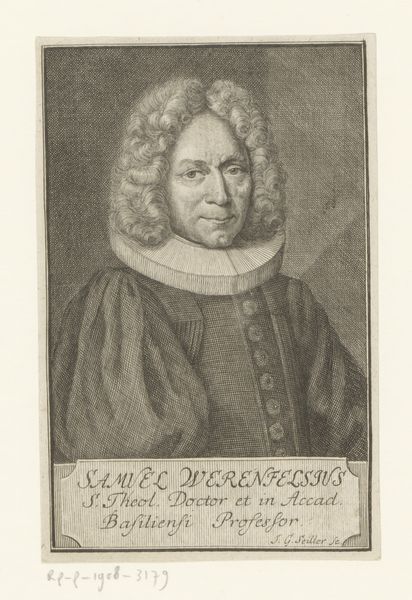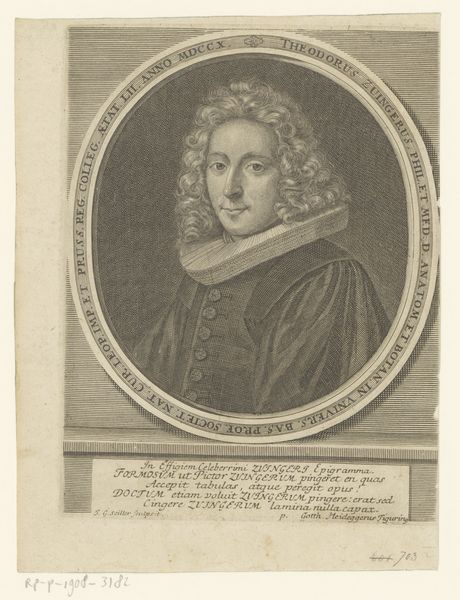
print, engraving
#
portrait
#
baroque
# print
#
figuration
#
history-painting
#
engraving
Dimensions: height 194 mm, width 140 mm
Copyright: Rijks Museum: Open Domain
Jaspar de Isaac made this engraving of Henri de Bourbon. Likely created in the mid-17th century, this portrait provides a glimpse into the image-making practices of the French aristocracy, and the role of institutional patronage at the time. Let’s consider the context: France was a society undergoing significant transformation, marked by political intrigue, religious conflict, and the consolidation of royal power. The Bourbon dynasty, to which Henri belonged, was central to this period. Aristocratic portraiture was a powerful tool, aimed at promoting a family's status. The engraver, working under the patronage of the Bourbons, would have needed to meet specific expectations for his work, making it an interesting document of both artistic skill and social performance. To better understand the image we can look to primary sources such as letters, diaries, and official documents. These help to understand the social conventions that shaped both the artist's production, and the sitter's expectations.
Comments
No comments
Be the first to comment and join the conversation on the ultimate creative platform.
